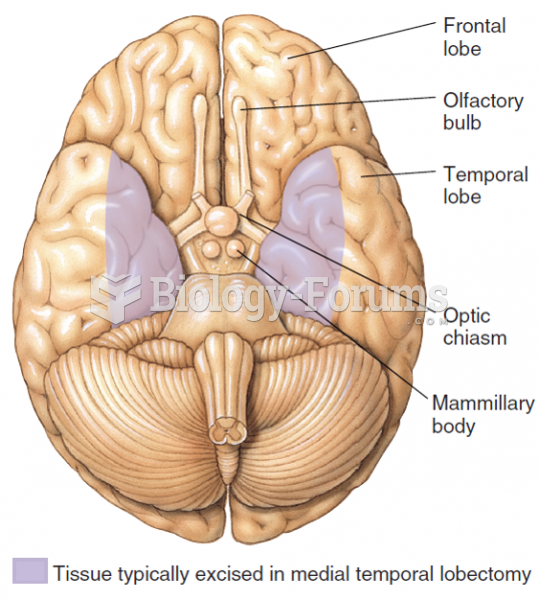|
|
|
A strange skin disease referred to as Morgellons has occurred in the southern United States and in California. Symptoms include slowly healing sores, joint pain, persistent fatigue, and a sensation of things crawling through the skin. Another symptom is strange-looking, threadlike extrusions coming out of the skin.
In 1864, the first barbiturate (barbituric acid) was synthesized.
Famous people who died from poisoning or drug overdose include, Adolf Hitler, Socrates, Juan Ponce de Leon, Marilyn Monroe, Judy Garland, and John Belushi.
The human body's pharmacokinetics are quite varied. Our hair holds onto drugs longer than our urine, blood, or saliva. For example, alcohol can be detected in the hair for up to 90 days after it was consumed. The same is true for marijuana, cocaine, ecstasy, heroin, methamphetamine, and nicotine.
The term bacteria was devised in the 19th century by German biologist Ferdinand Cohn. He based it on the Greek word "bakterion" meaning a small rod or staff. Cohn is considered to be the father of modern bacteriology.
 The Death of Socrates by Jacques Louis David. The eighteenth-century French painter David portrayed ...
The Death of Socrates by Jacques Louis David. The eighteenth-century French painter David portrayed ...
 Medial temporal lobectomy. The portions of the medial temporal lobes that were removed from H.M.’s ...
Medial temporal lobectomy. The portions of the medial temporal lobes that were removed from H.M.’s ...





